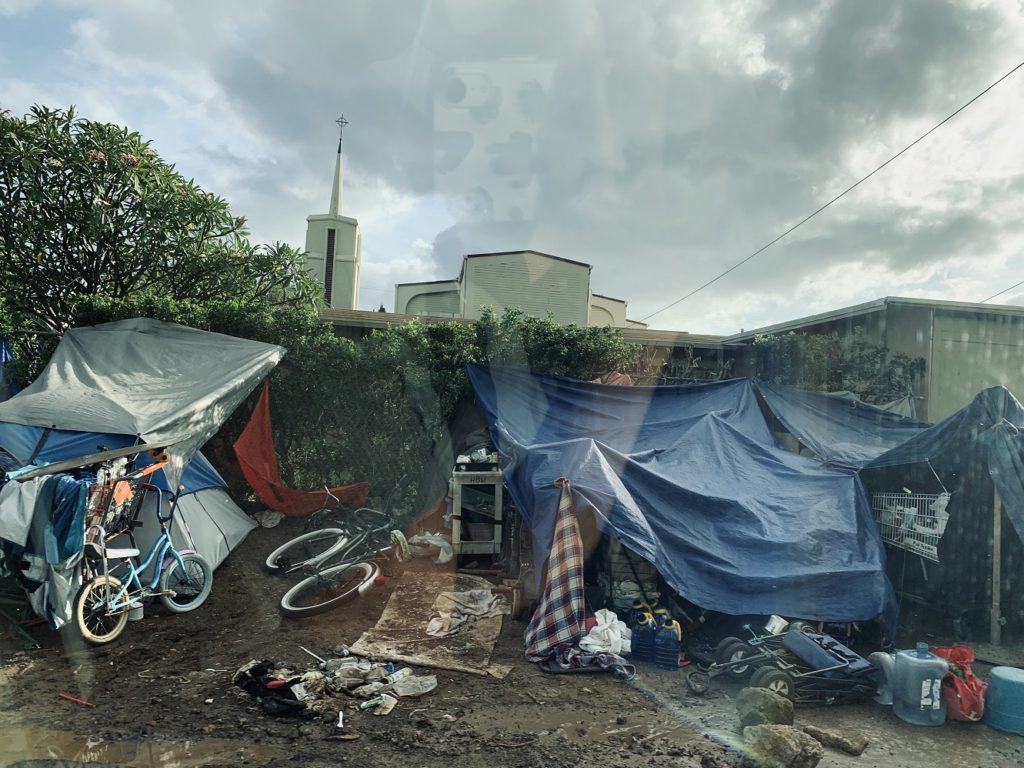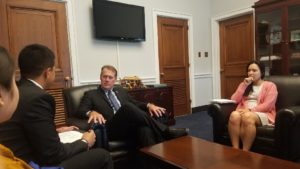For the last 20 years, the Southeast Asia Resource Action Center (SEARAC) has been mentoring advocates from Southeast Asian American (SEAA) and ally communities. Through SEARAC’s Leadership and Advocacy Training (LAT) program, SEAA members and allies participate in three days of training to develop communication and advocacy skills. SEARAC’s LAT program enables participants to transform their community’s story into policy change with focuses on health policy, education policy, and immigration policy. The program ends with a day of advocacy where participants meet with their Congressional representatives and/or staff to address the issues in their respective communities. Last week I got to attend SEARAC’s LAT program and it was one of the most memorable experiences I have had.

A street behind my apartment complex filled with homeless camps supporting families.
During my time at SEARAC’s LAT program, I advocated on the issue of homelessness in my community. Homelessness has always been a problem in my neighborhood of Kalihi, but recently it seems like it has reached a new level. In Honolulu, there are 6530 homeless individuals on any given day. This also includes 623 homeless families from SEAA, AAPI and Native Hawaiian communities. It is extremely saddening to see children, older adults, and families scattered on the streets of Kalihi. Compounded by the high rates of drug use, the homeless community is particularly vulnerable with inadequate support in many aspects including housing, social, and health. Without these supports, many older adults, children, and families will fall victim to burdens of homelessness – something that can already be observed in Kalihi.

My meeting with Ed Case, U.S. Representative for Hawaii’s 1st congressional district.
Homelessness in my community has always been a motivation to improve access to healthcare and resources that are vital for older adults and their families. Through SEARAC’s LAT program, I had the opportunity to learn about the power of advocacy in helping me achieve this goal. Coming from a neighborhood of poverty in the “paradise” state of Hawaii, I have always felt that there was a lack of focus on my community and so being able to speak with Ed Case, my State representative on the issue of homelessness was very fulfilling.
During my time at the LAT program, I was able to uplift my community’s story and advocate for health policies that can help resolve the burdens of homelessness. It was amazing to be a part of this transformative process where participants connected with each other and dissected their personal/community stories into policy solutions. I am so happy to be leaving with a support network of forty-seven leaders that were a part of the 2019 LAT cohort. Although my journey into advocacy has just begun, I am optimistic that my experience in SEARAC’s LAT program will help me reach my goals.

Ocean (second from left) with some of the leaders he met in the LAT program
The opinions expressed in this article are those of the author and do not necessarily reflect those of the Diverse Elders Coalition.
